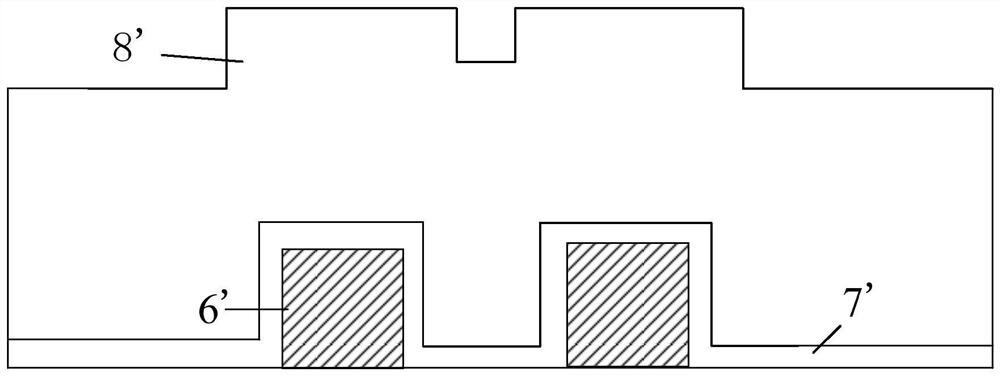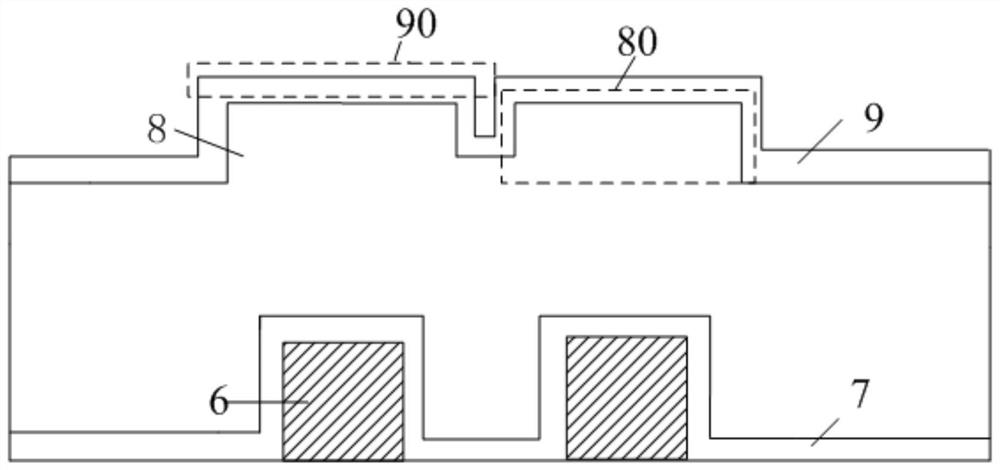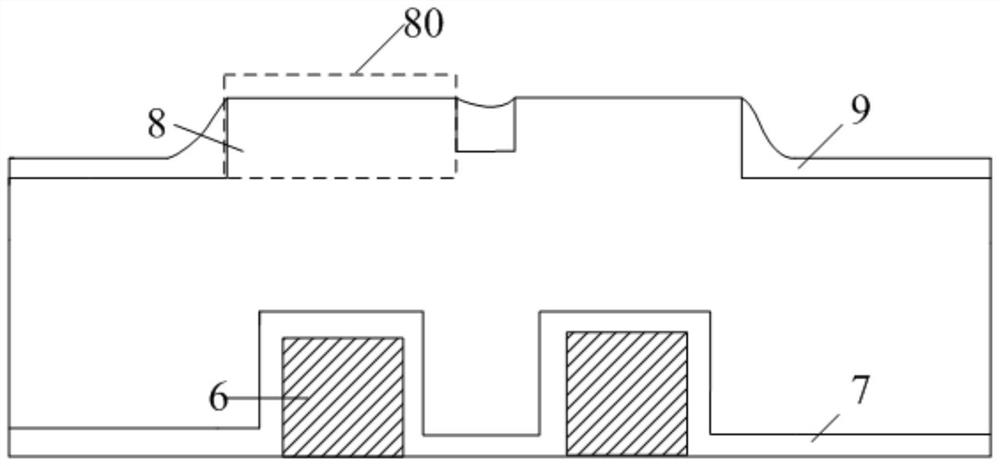mram array and its manufacturing method
A manufacturing method and array technology, applied in the manufacture/processing of electromagnetic devices, semiconductor devices, electrical components, etc., can solve problems such as poor chip uniformity, achieve good uniformity, and shorten removal time
- Summary
- Abstract
- Description
- Claims
- Application Information
AI Technical Summary
Problems solved by technology
Method used
Image
Examples
Embodiment 1
[0082] A substrate 1 including a base and structures prepared through previous processes on the base is prepared.
[0083] On the substrate 1, a copper metal layer is deposited by a damascene process (the isolation dielectric layer 11 is arranged on the substrate, and then holes are opened in the isolation dielectric layer, and metal copper is filled in the holes), forming a plurality of connection metal layers 2, and more The surface of the connection metal layer 2 away from the substrate is on the same plane, such as Figure 10 shown.
[0084] N-BLOK is deposited on the surface of each connecting metal layer 2 away from the substrate 1 to form a barrier layer 3 . Formation of SiO by PECVD on barrier layer 3 using TEOS 2 layer, that is, the first isolation layer 41 .
[0085] First through holes are opened in the barrier layer 3 and the first isolation layer 41 on each of the connecting metal layers 2 , and the first through holes correspond to the connecting metal layers ...
Embodiment 2
[0097] The difference from Example 1 is that the thickness of the MTJ unit is the same as that of the low-K dielectric layer, both And after removing the first raised portion and the remaining polishing barrier layer, it is only necessary to use chemical mechanical polishing to remove the protective layer 7 on the plane where the first surface is located, and then deposit Ta on the first surface and the above-mentioned dielectric unit, and engrave The excess Ta is etched to form the top electrode.
PUM
 Login to View More
Login to View More Abstract
Description
Claims
Application Information
 Login to View More
Login to View More - R&D
- Intellectual Property
- Life Sciences
- Materials
- Tech Scout
- Unparalleled Data Quality
- Higher Quality Content
- 60% Fewer Hallucinations
Browse by: Latest US Patents, China's latest patents, Technical Efficacy Thesaurus, Application Domain, Technology Topic, Popular Technical Reports.
© 2025 PatSnap. All rights reserved.Legal|Privacy policy|Modern Slavery Act Transparency Statement|Sitemap|About US| Contact US: help@patsnap.com



